1) Consume whole grains, not refined grains: In USA, nutrition labels are FDA regulated, so they are required to be accurate! In nutritional labels, the word 'whole' indicates that a whole grain was used. For example, "whole wheat flour" indicates whole grains but simply "wheat flour" or "enriched wheat flour" or "durum flour" or "semolina" indicates refined grains. However, there are exceptions (all these exceptions make it difficult to read food labels! Phew!). As this article by Whole Grains Council explains, phrases like "brown rice", "oats", "oatmeal", "wheatberries" also indicate whole grains. Further, as this article by FDA indicates, phrases like "Graham flour" also indicate whole grains.
2) Avoid oils: Why? See No Oil! Oils are extracts; in WFPB, we consume nuts, nuts and avocados instead (whole foods).
3) Avoid added sugars: An article by CDC (Center for Disease Control, USA): Know Your Limits for Added Sugars explains:
"Added sugars" is a term used for things like "brown sugar, corn sweetener, corn syrup, dextrose, fructose, glucose, high-fructose corn syrup, honey, lactose, malt syrup, maltose, molasses, raw sugar, and sucrose".
WHO diet guidelines for adults say,
"Less than 10% of total energy intake from free sugars (2, 7), which is equivalent to 50 g (or about 12 level teaspoons) for a person of healthy body weight consuming about 2000 calories per day, but ideally is less than 5% of total energy intake for additional health benefits (7)".
USDA guidelines for 2015-2020 say,
"The 2015-2020 Dietary Guidelines for Americans recommends limiting calories from added sugars to no more than 10% each day. That's 200 calories, or about 12 teaspoons, for a 2,000 calorie diet."
AHA (American Heart Association) guidelines for 2020:
"The American Heart Association (AHA) recommends limiting the amounts of added sugars you consume to no more than half of your daily discretionary calories allowance. For most American women, that's no more than 100 calories per day, or about 6 teaspoons of sugar. For men, it's 150 calories per day, or about 9 teaspoons."
Are "added sugars" healthy? Nope! See Google search: "added sugars" for myriad articles making us wary of added sugars.
Are "added sugars" necessary? Nope! We can dial them down to 0% by consuming a Whole Food Plant-Based (WFPB) diet. Added sugars make their way into our foods only via "processed foods" or "ultra processed foods", which are not part of WFPB.
4) No chemical additives: Most people avoid chemical additives (with strange, incomprehensible names) in food. Also, note that we can prepare delectable breads at home without chemical additives!
But what about addition of supplements like vitamins and iron? Well, WFPB doctors encourage that we address micro-nutrient deficiencies through diet alone; we should consume supplements only if necessary.
Dr Greger's videos on Vitamins and Supplements explain that most supplements are a 'waste of money' but some supplements are actually harmful! How harmful?
Supplements seem to be harmful enough that one of the 10 Guidelines by AICR (American Institute of Cancer Research) is "Do Not Use Supplements for Cancer Prevention" — see this infographic. This article has more details: Don't Rely on Supplements for Cancer Prevention ("Aim to meat nutritional needs through diet alone", suggests AICR).
5) Use salt sparingly: If we can forego salt altogether, that would be awesome! By doing so, we gravitate towards WFPB-SOS in which case all three have been removed: {sugar, oil, salt}.
6) Consume flours and breads in limited quantities: See ForksOverKnives guidelines — scroll down to see a 3-column table with green, yellow and red foods.
In many parts of the world, flours are consumed for all three meals: breakfast, lunch and dinner! So many people are surprised to learn that flours (and breads) — even whole grain flours (and whole grain breads) — should be consumed in limited quantities.
A great video to learn about grains is Whole Grain Hierarchy (12 mins, YouTube) by Brenda Davis. She explains that whole grain flours should be consumed in moderation. In fact, those tackling a chronic disease like obesity or diabetes should forego flours (and breads) altogether! Brenda Davis' video is the basis for this long article: Whole Grains Hierarchy.
'Flour addiction': WFPB practitioners sometimes talk about 'flour addiction'. Chef AJ mentions it in her talk From Fat Vegan to Skinny Bitch (51 mins, YouTube). She turned vegan many years ago but continued to be overweight. So she worked closely work WFPB doctors and cut out oils, nuts & seeds, avocados, sugar, flours, and so on, to arrive at a healthy weight for the first time in her life! She now runs a Chef AJ Ultimate Weight-Loss Program to help others lose weight with WFPB Diet. She has also written a book called The Secrets to Ultimate Weight Loss (318 pages, 2018).
Lots of recipes online for sugar-free, chemical-free, oil-free breads.
Whole Wheat Pita Bread: 4-ingredient recipe with whole wheat, water, yeast and salt.
Yesterday, I visited Trader Joe's and Whole Foods. I looked for breads satisfying these constraints: (a) whole grains (not refined) (b) free of added sugars, and (c) free of chemicals. In addition, if a bread is oil-free, even better! Finally, if the bread is salt-free, awesome! :-) What did I discover?
- Sprouted breads by two specific brands are the healthiest: Manna Bread and Ezekiel 4:9 Low Sodium. Both have sprouted whole grains, zero added sugars, zero chemicals, no oil and no salt!
- Another class of healthy breads are the 'thick, brick-like breads' by brands like Mestemacher and Genuine Bavarian.
- Some brands of whole grain tortillas are free of added sugars, free of chemical additives, oil-free. However, all tortillas have salt.
- Regular breads can be whole grain, free of added sugars and free of chemicals. However, they invariably have some oil and some salt. Sometimes, they have chemicals like sunflower lecithin (an extract). Sometimes, they have animal-based products like honey.
- We can make healthy breads at home in a bread machine or an oven!
A flourless, cake-like bread with sprouted whole grains, zero added sugars, zero chemicals, no oil and no salt! Whole Foods has it. Manna Bread comes in many varieties: see Manna Breads.
Manna bread is also yeast free! This may be helpful to those avoiding yeast — Dr Greger recommends that people with Crohn's disease should avoid all yeast: see Is Nutritional Yeast Healthy For Everyone? (2017, 6 mins) and Does Nutritional Yeast Trigger Crohn's Disease? (2022, 7 mins).
Manna Bread review (YouTube, 3 mins).
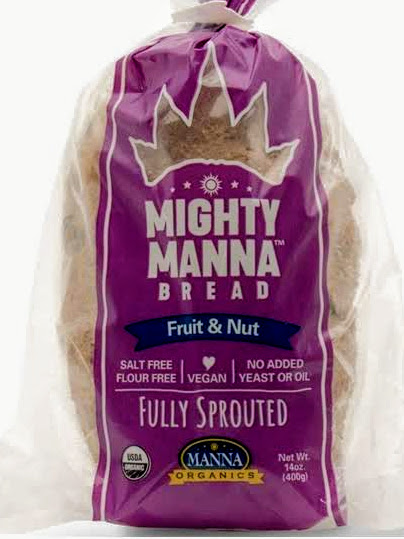
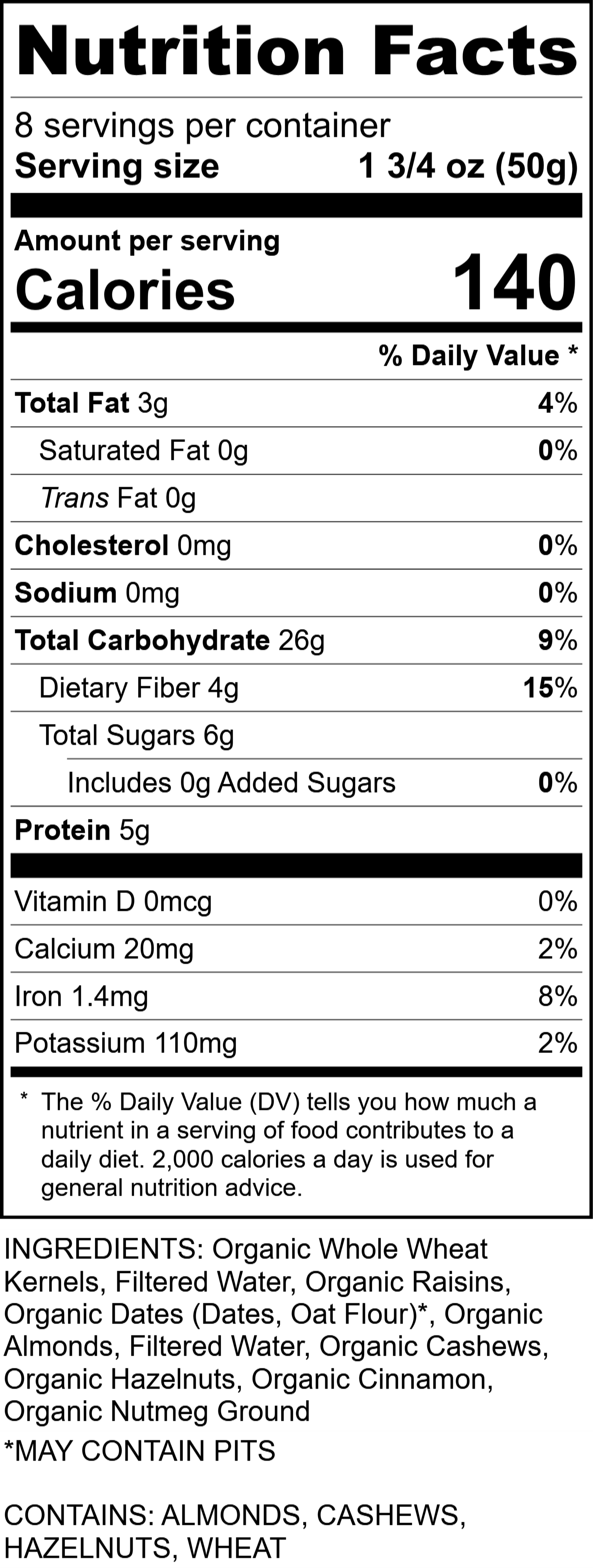
A flourless, cake-like bread with sprouted whole grains, zero added sugars, zero chemicals, no oil and no salt! Whole Foods has it. Manna Bread comes in many varieties: see Manna Breads.
Manna bread is also yeast free! This may be helpful to those avoiding yeast — Dr Greger recommends that people with Crohn's disease should avoid all yeast: see Is Nutritional Yeast Healthy For Everyone? (2017, 6 mins) and Does Nutritional Yeast Trigger Crohn's Disease? (2022, 7 mins).
Manna Bread review (YouTube, 3 mins).
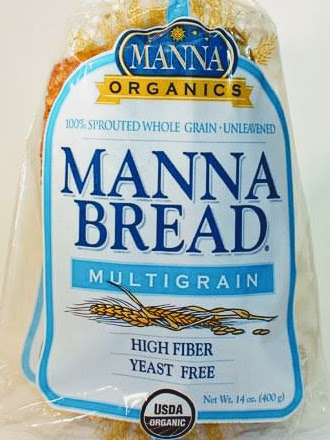
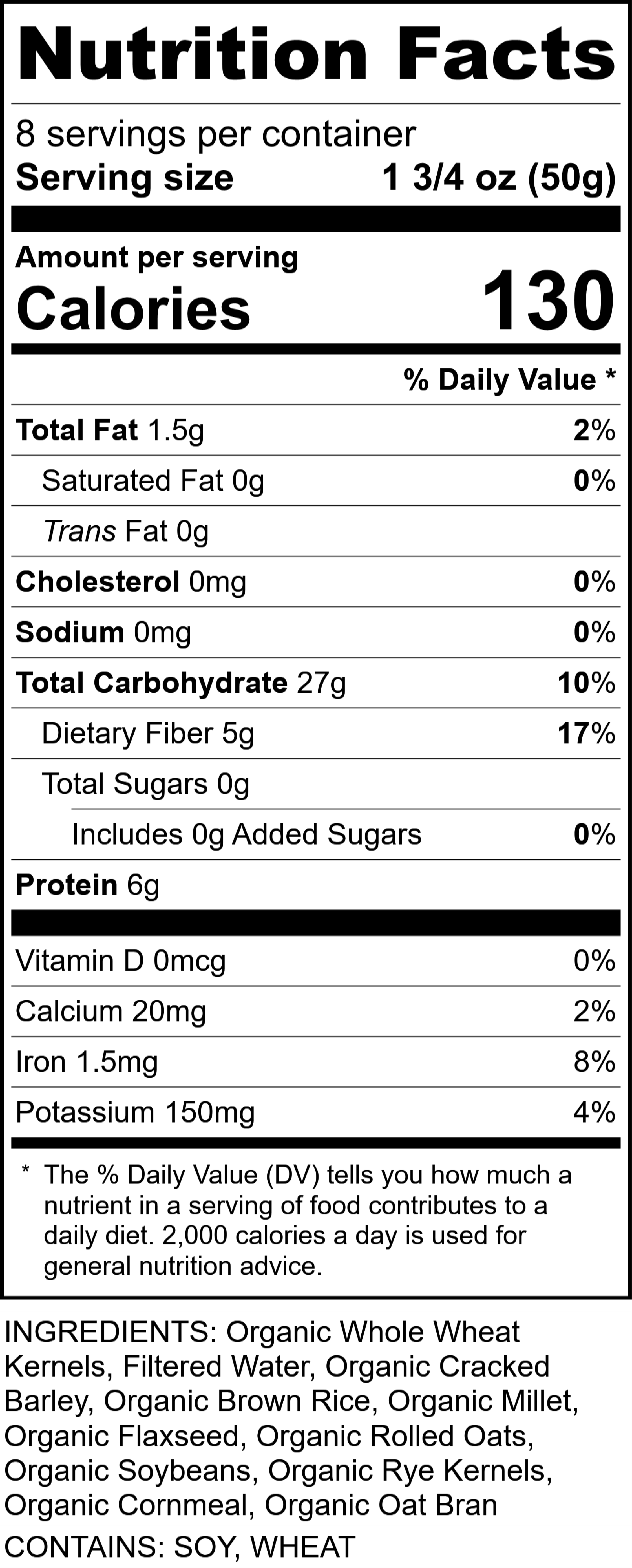
A great bread with sprouted whole grains, zero added sugars, zero chemicals, no oil! Ingredients include wheat, barley, beans, lentils, millet and spelt — the only bread with beans and lentils! One of the ingredients is 'malted barley', which is basically barley that has been sprouted and dried: see Malted Barley (3 mins, YouTube).
Ezekiel 4:9 comes in many varieties. See Ezekiel 4:9 Breads. Only the Ezekiel 4:9 Low Sodium is salt-free. Others have some salt.
Sold in Trader Joe's (three varieties) and Sprouts (more expensive; many more varieties). Maybe Whole Foods also has it; not sure.
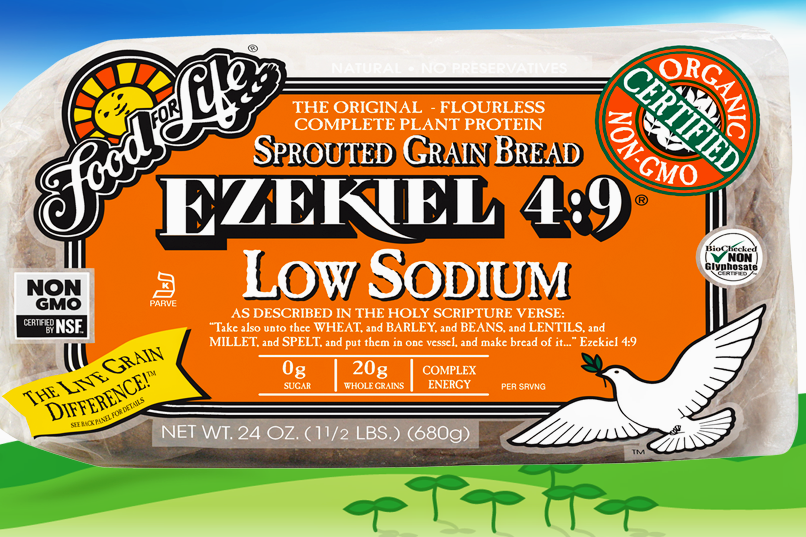
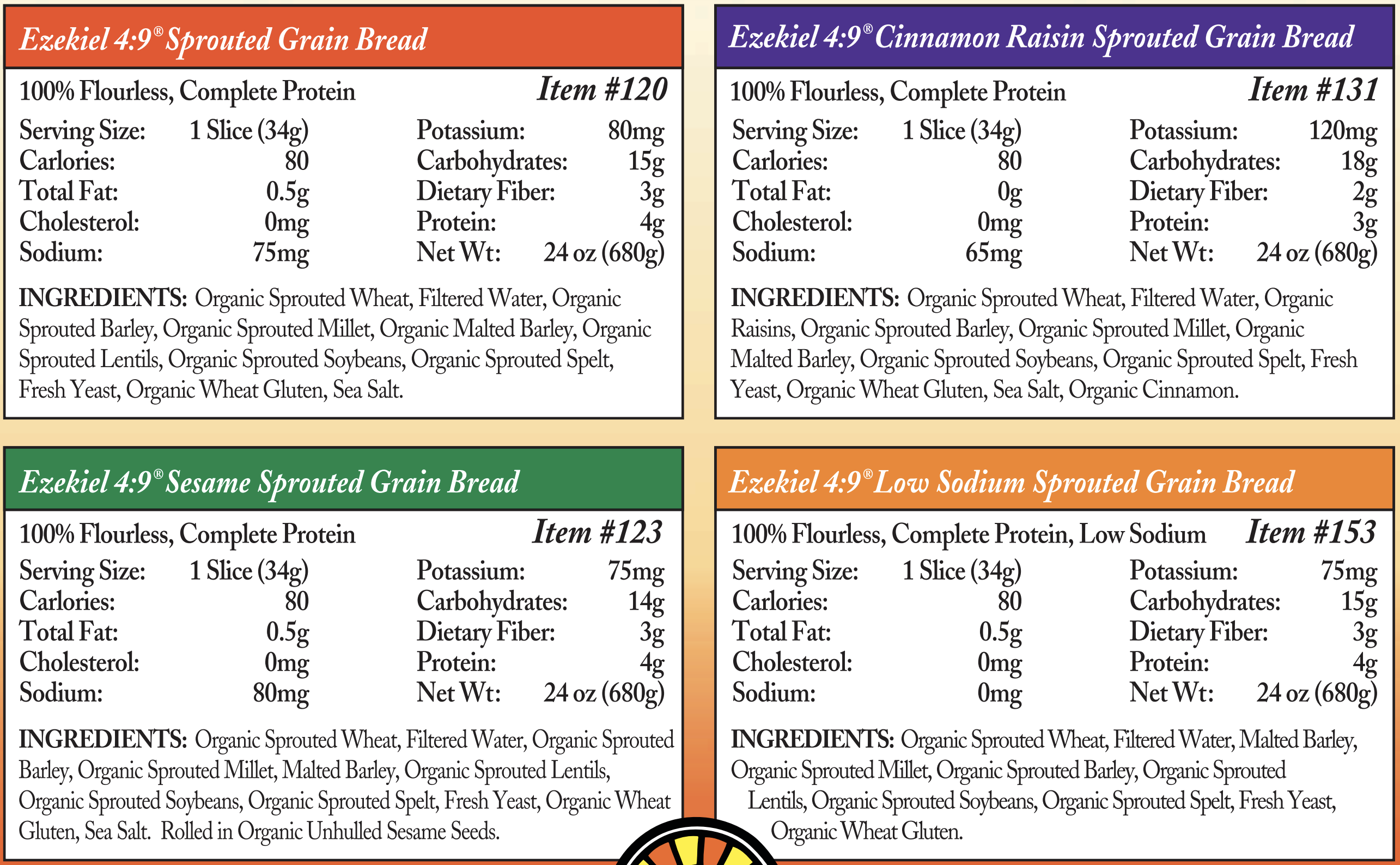
Mestemacher makes the 'hard breads' mentioned in Brenda Davis' 12-minute video: Whole Grain Hierarchy. This bread has whole grains, no added sugars, no chemicals, no oils. Only some sea salt. This bread is small-sized, thinly sliced and dense.
Available in Whole Foods.
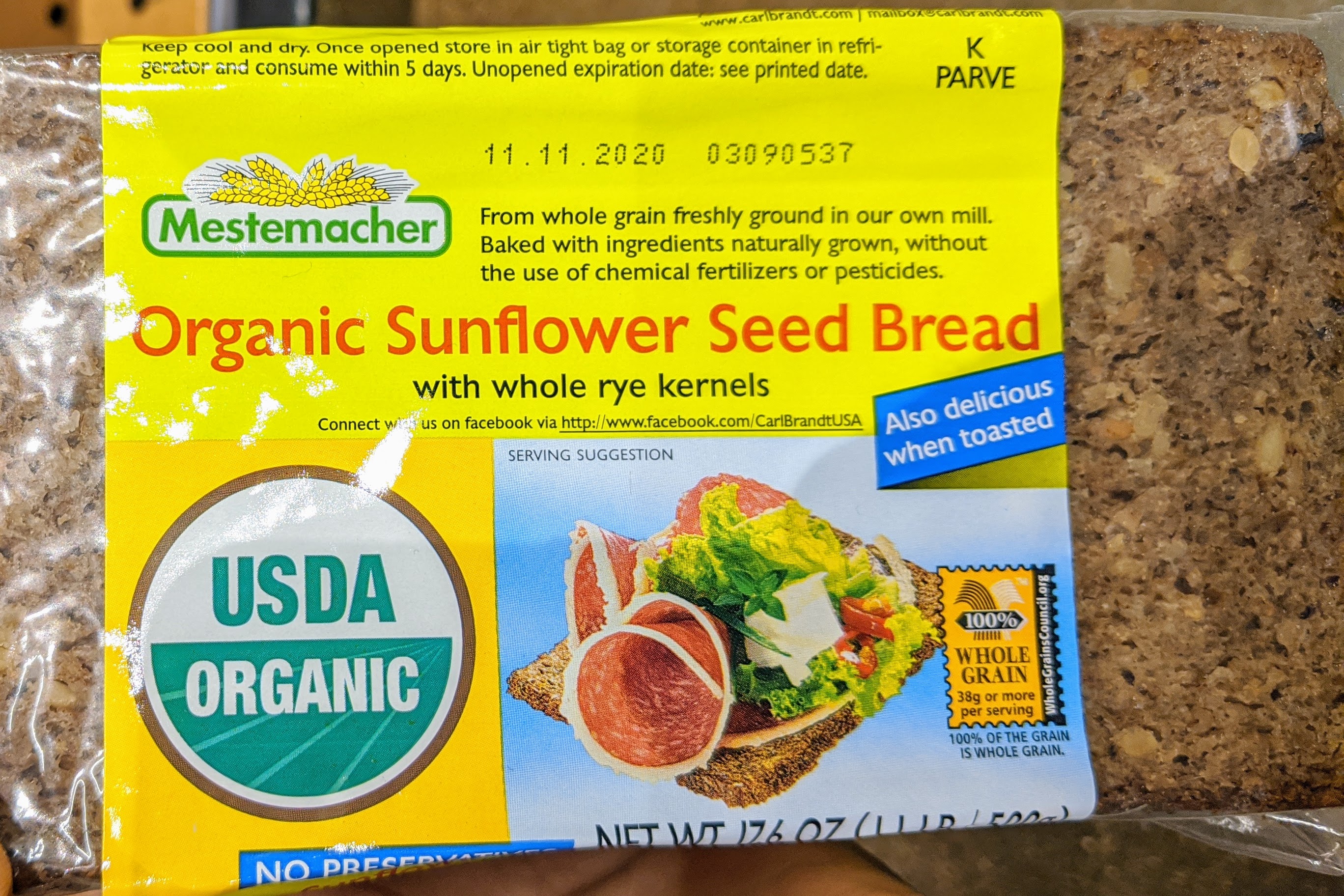
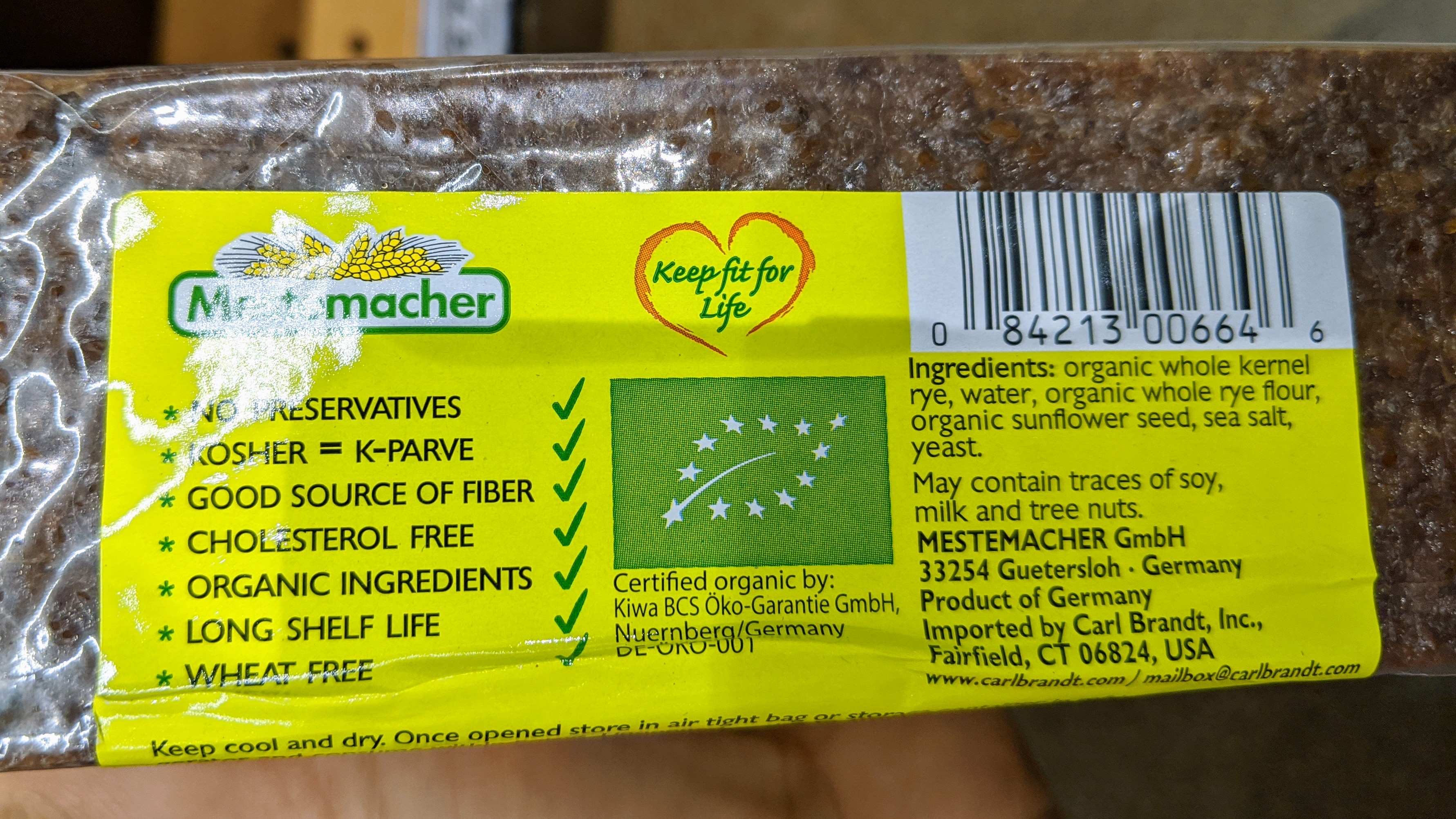
Mestemacher makes the 'hard breads' mentioned in Brenda Davis' 12-minute video: Whole Grain Hierarchy. This bread has whole grains, no added sugars, no chemicals, no oils. Only some sea salt. This bread is small-sized, thinly sliced and dense.
Available in Whole Foods.
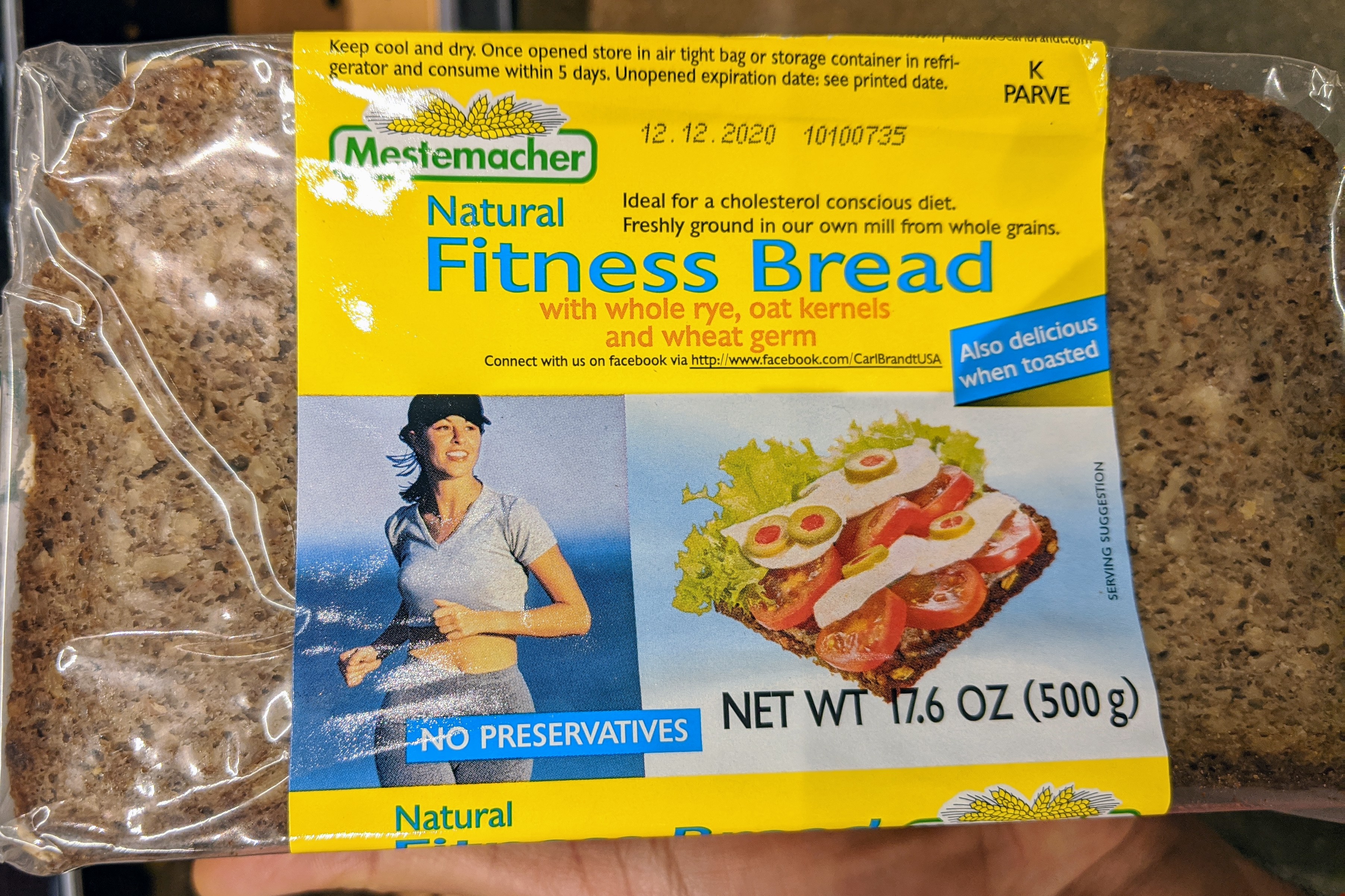
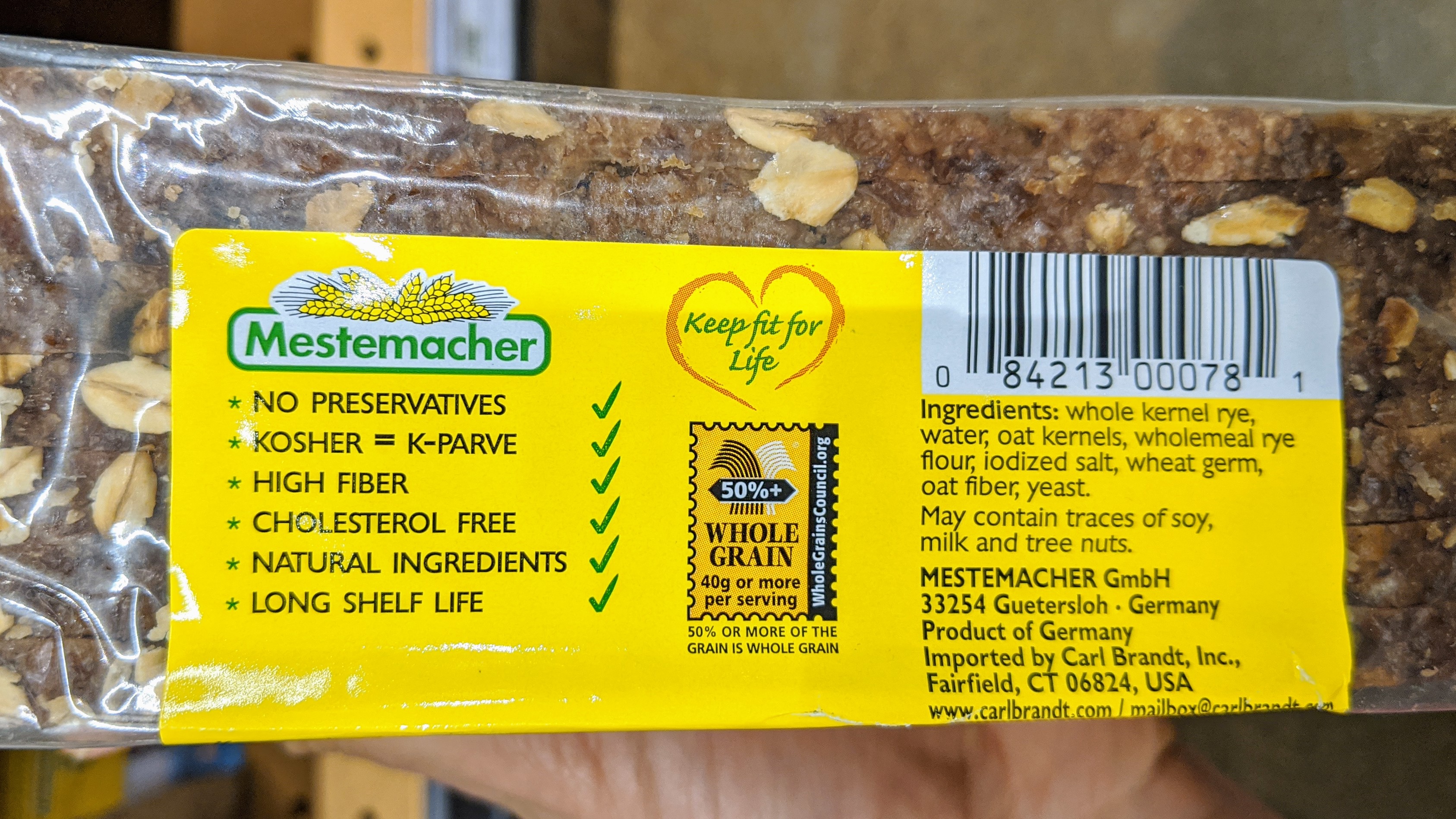
This bread by Genuine Bavarian is a 'hard bread' mentioned in Brenda Davis' 12-minute video: Whole Grain Hierarchy. This bread has whole grains, no added sugars, no chemicals, no oils. Only some sea salt. This bread is small-sized, thinly sliced and dense.
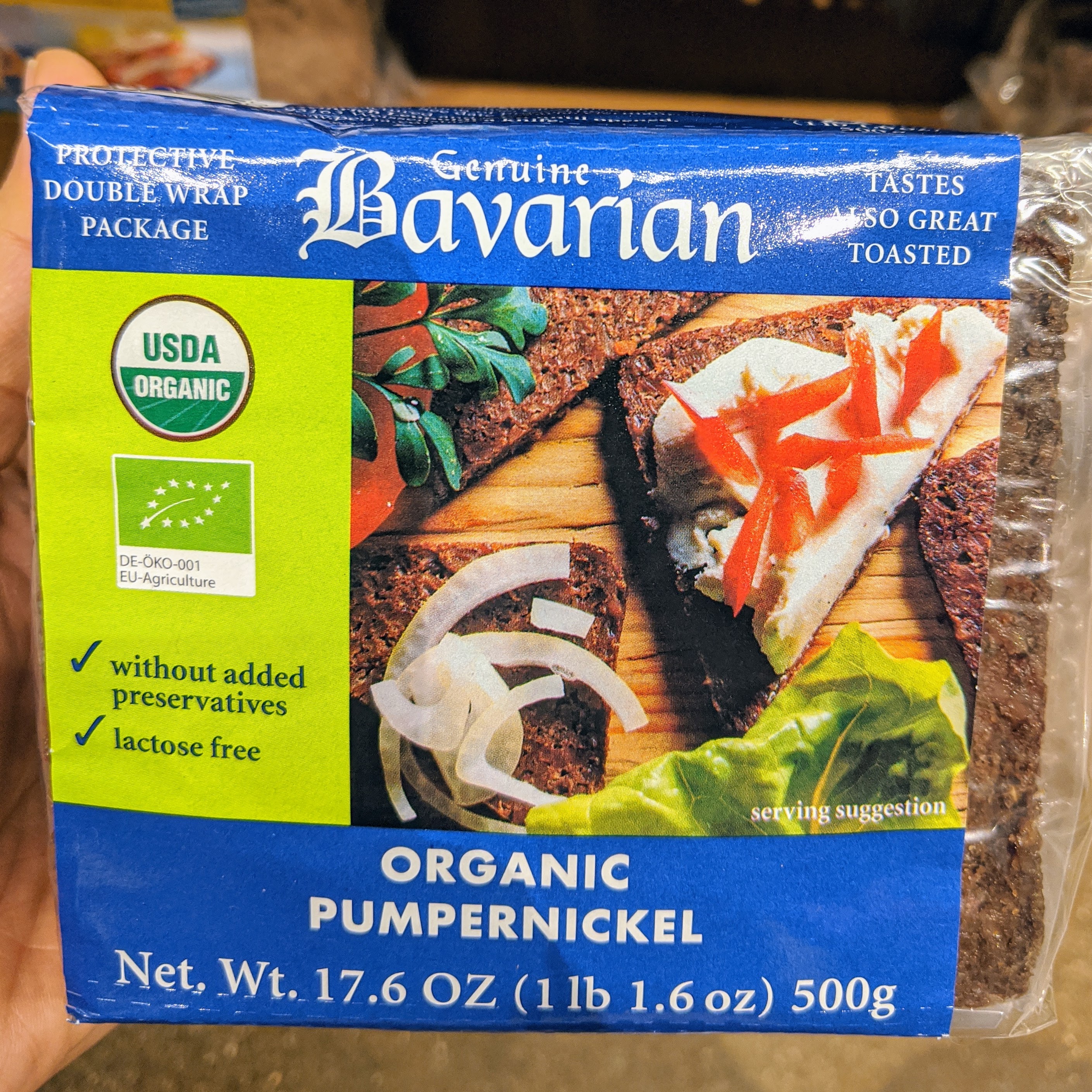
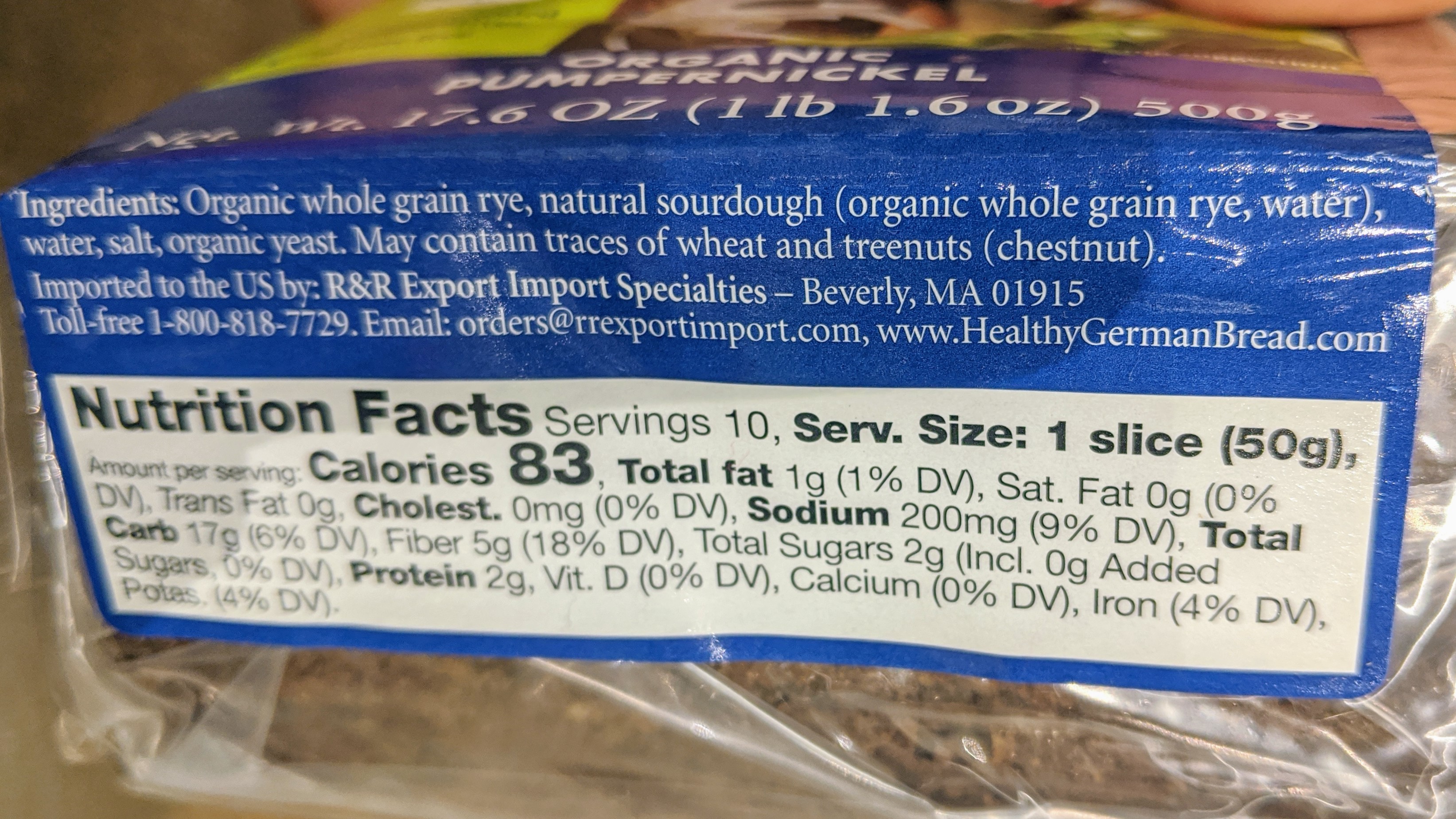
These corn tortillas by Mi Rancho are made from whole grains. The 'yellow corn masa flour' refers to flour made by nixtamalizing corn, the traditional process by which corn is ground in limestone vessels. These tortillas have 'traces of lime', a chemical — don't know why we need to add this to tortillas but I imagine it is not a harmful chemical because nixtamalization involves limestone.
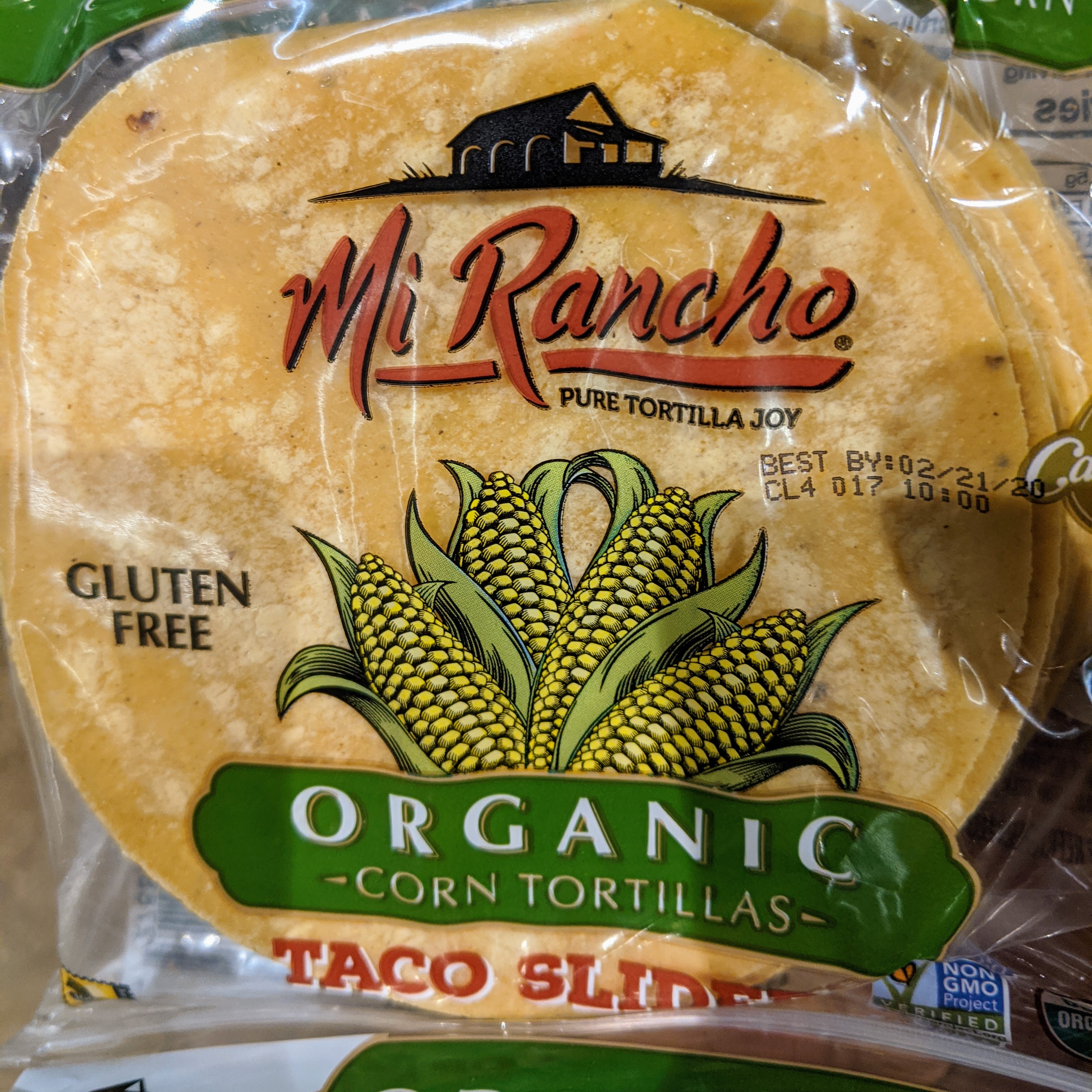
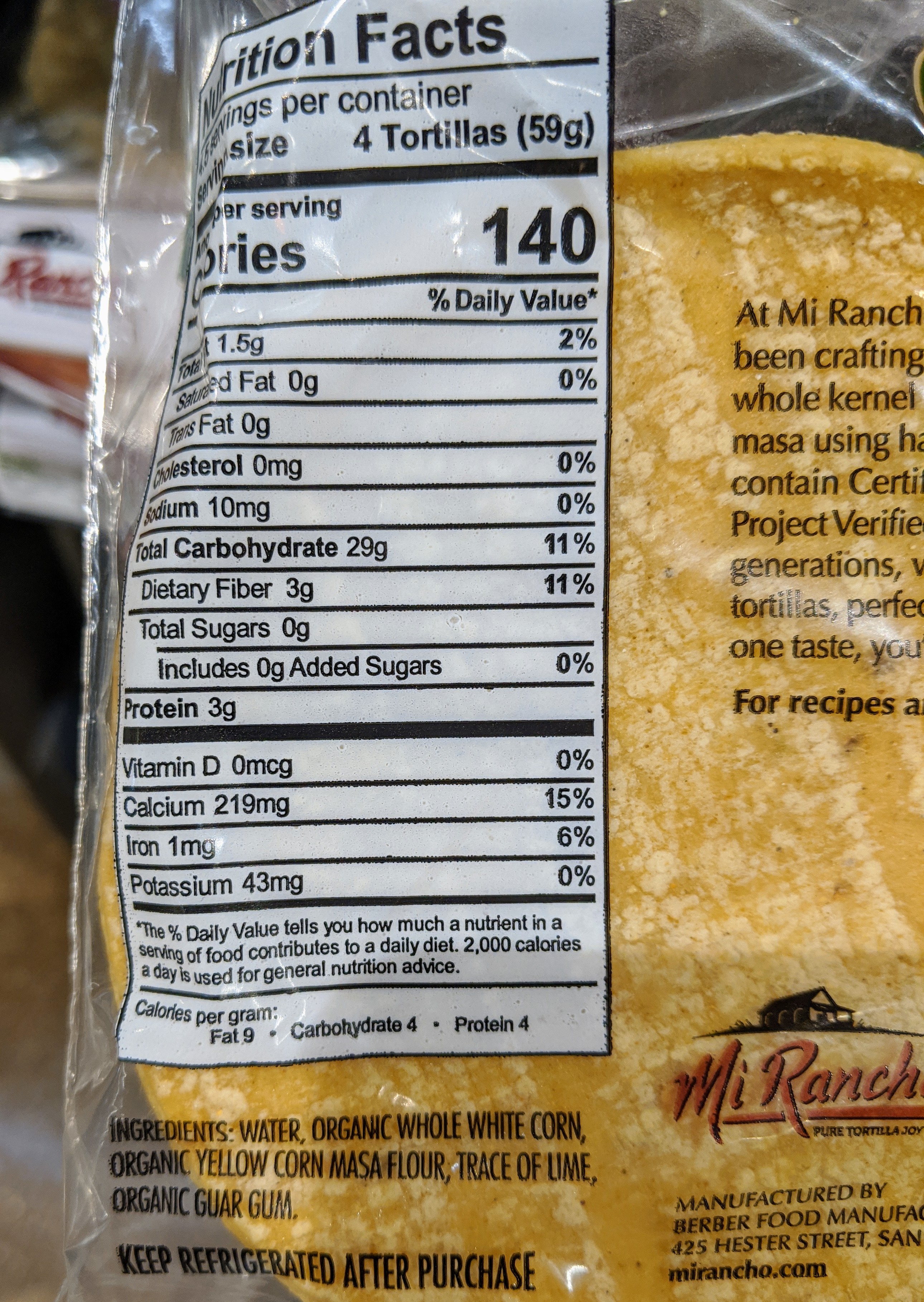
Simple, 3-ingredient tortillas made from stone ground corn, water and 'trace of lime'!
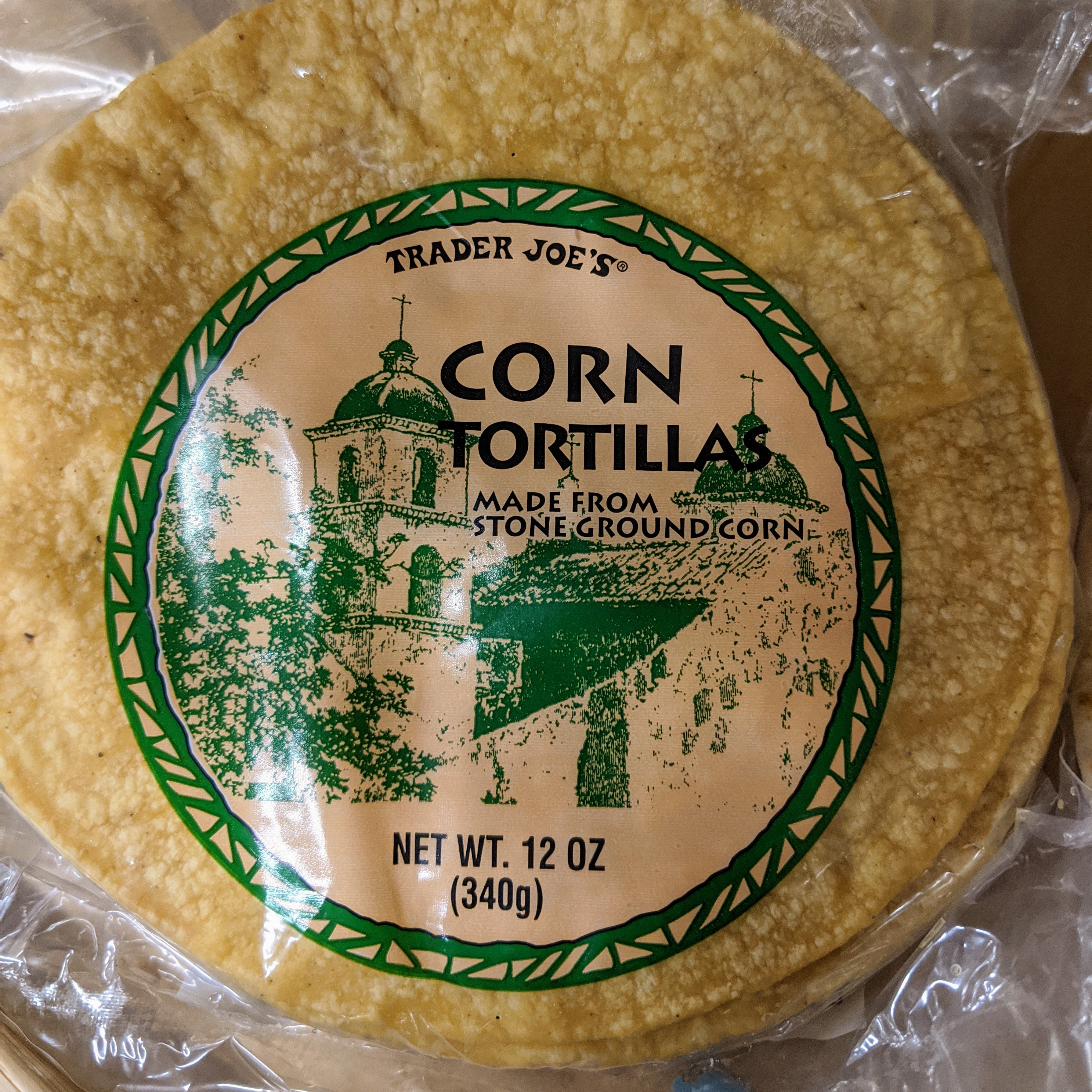
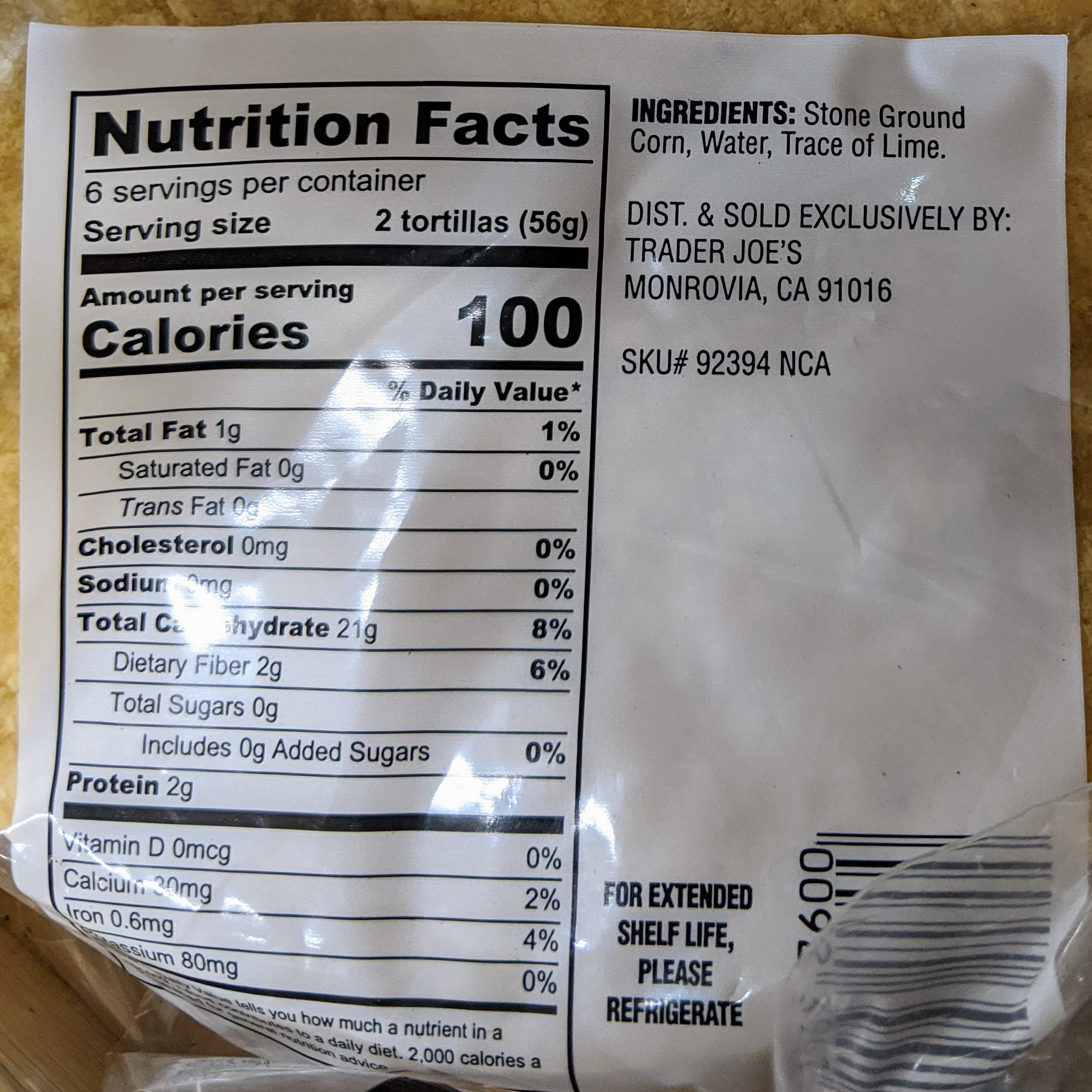
This bread is made of whole grains (but it has "vital gluten" which is made from wheatberries by removing the starch). It is sugar-free. It has some salt. The last ingredient is a chemical: citric acid. Luckily, Dr Greger explains that citric acid is okay as a food additive.
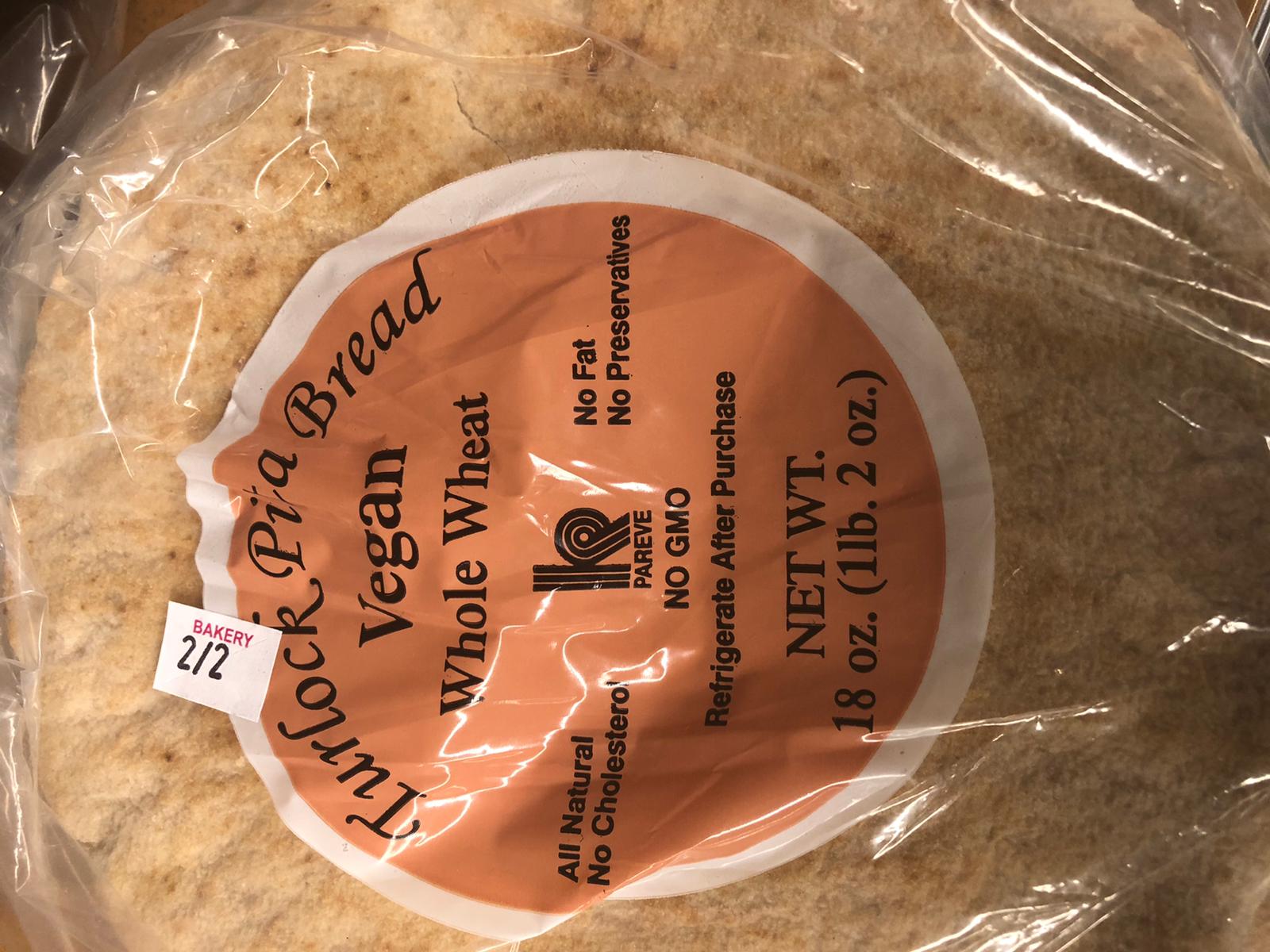
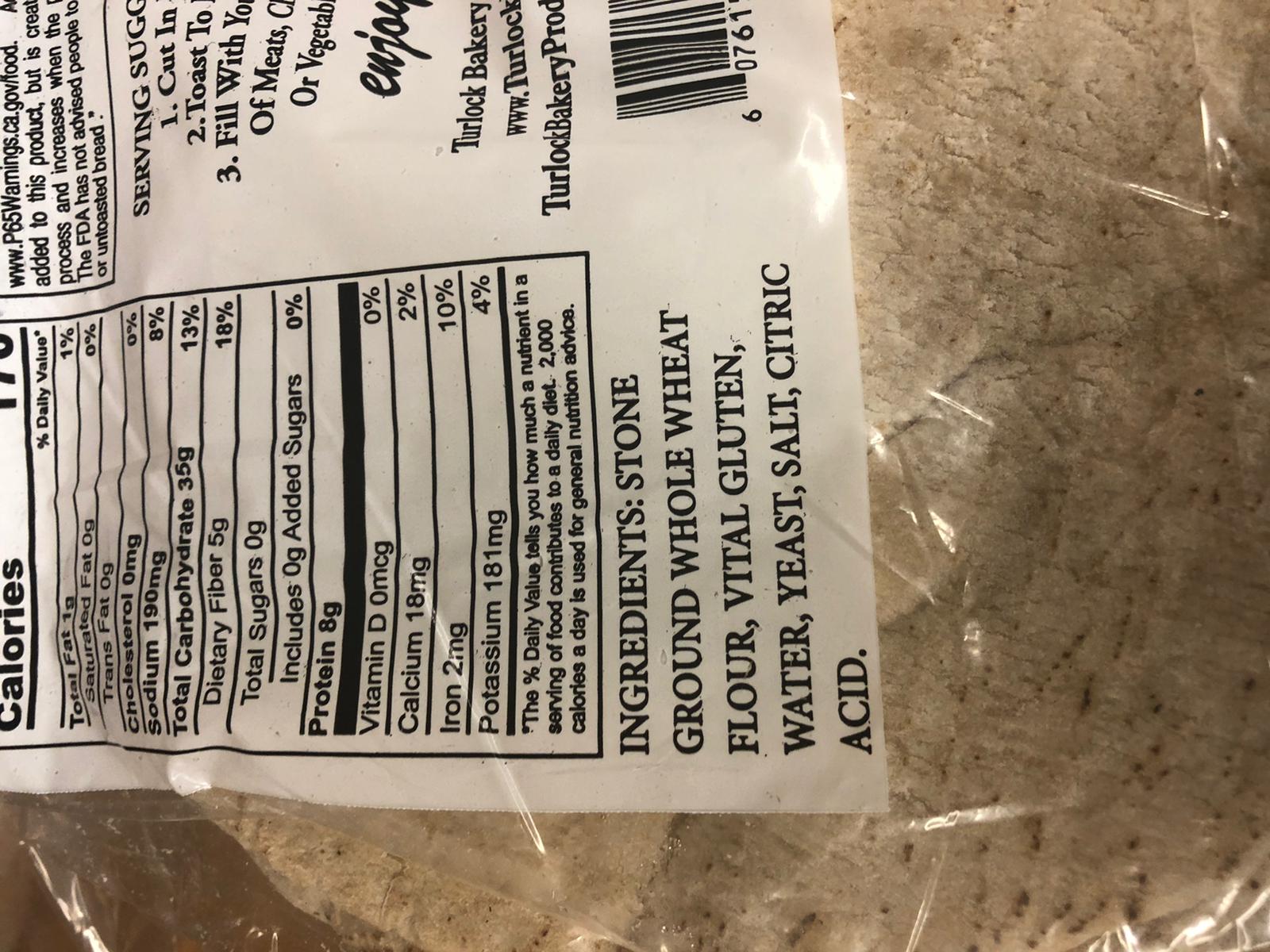
These tortillas have whole grains and no added sugars. Some salt is present. These tortillas also have oil (non-WFPB ingredient) and a chemical additive: sunflower lecithin. Available in Trader Joe's.
Sunflower lecithin: Soy lecithin (YouTube, 3 mins) explains the role of lecithin, its chemical composition and why it is used in food preparation. Sunflower lecithin is different from soy lecithin: the source is different. In fact, many brands sell sunflower lecithin supplements! However, Dr Greger (a prominent WFPB advocate) explains: Avoid Carnitine & Lecithin Supplements (2013). Keeping Dr Greger's recomendation in mind, is it a good idea to add sunflower lecithin to processed foods?
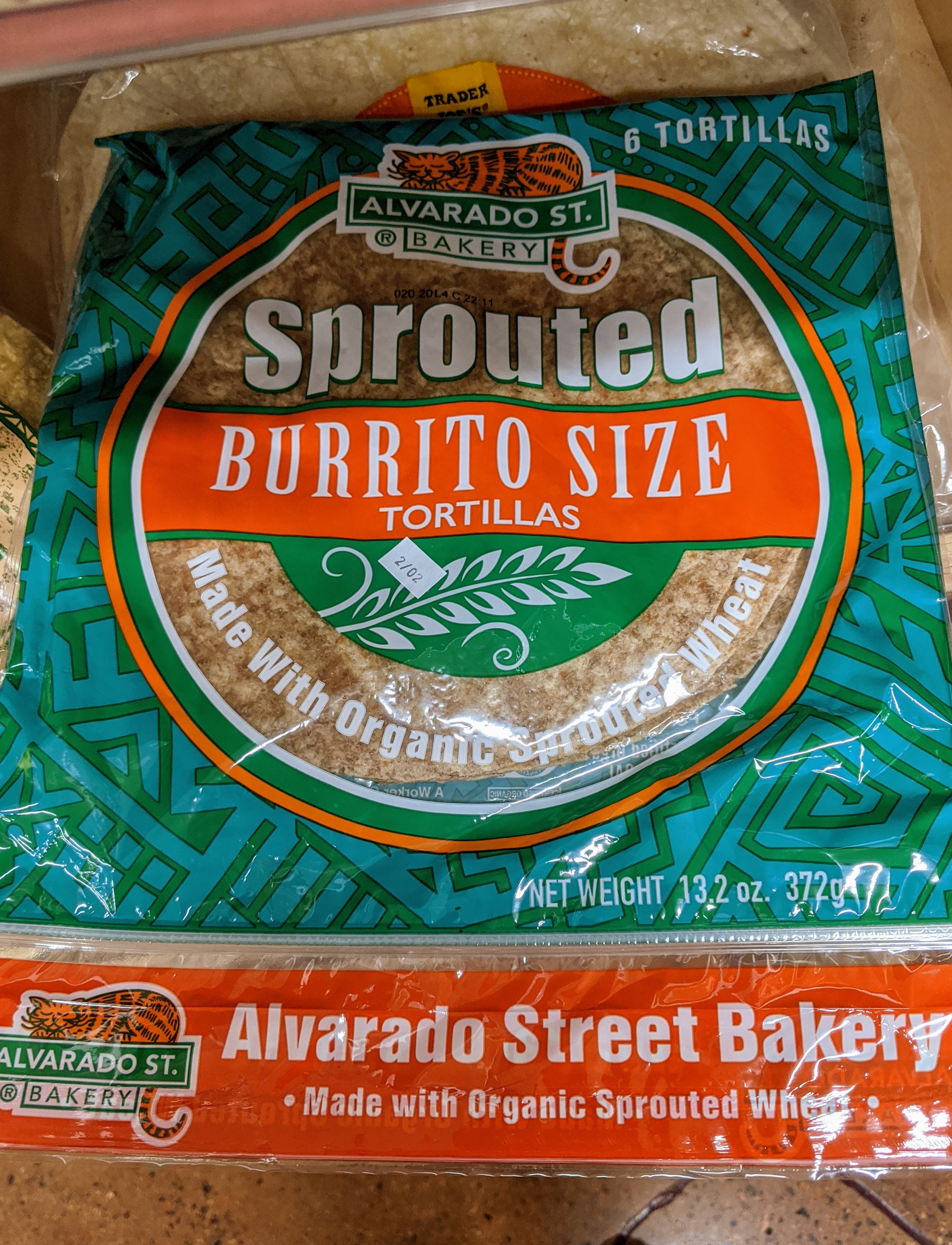
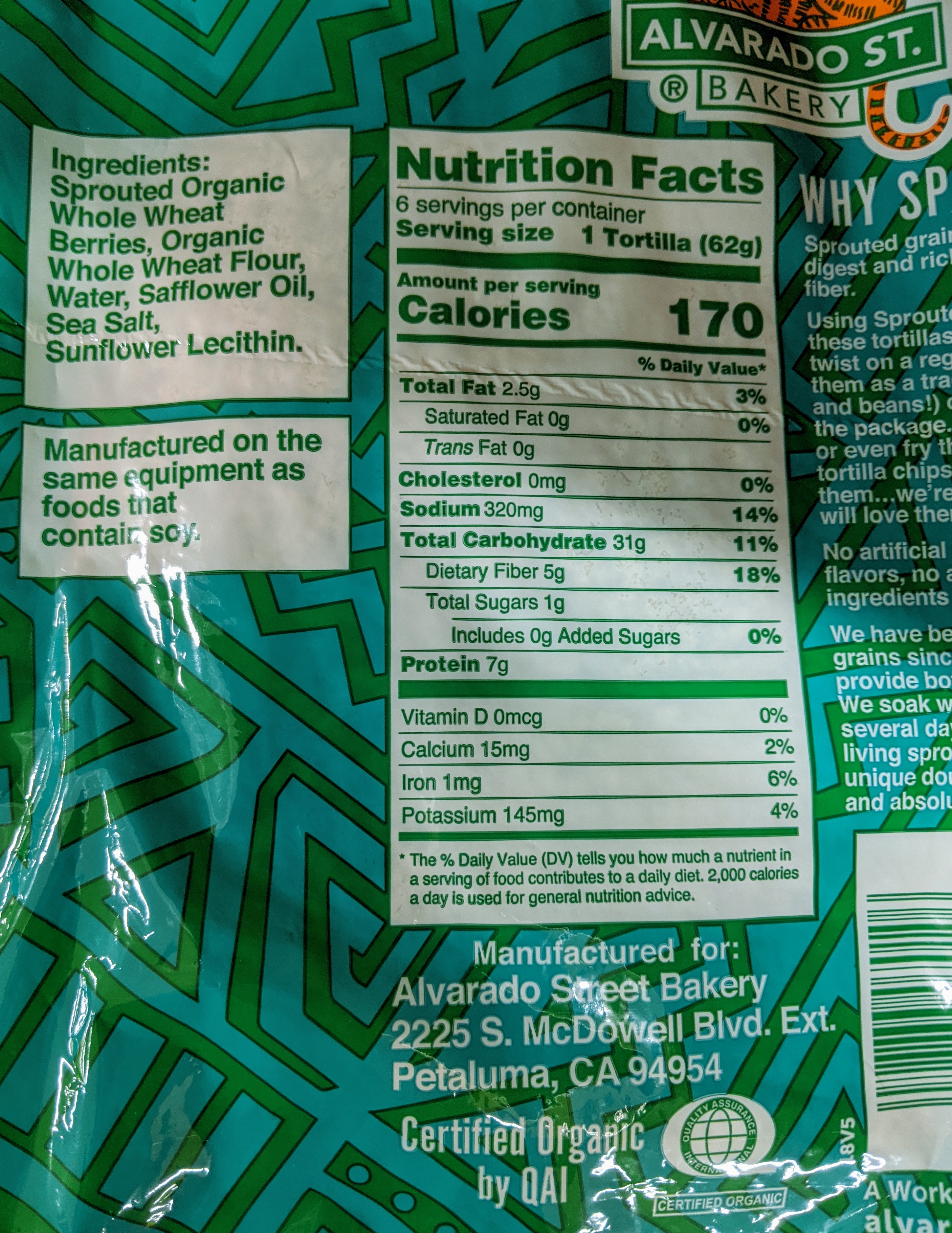
This bread has whole grains, no chemicals, no added sugars, no oil! Has some sea salt. The only non-WFPB ingredient is honey.
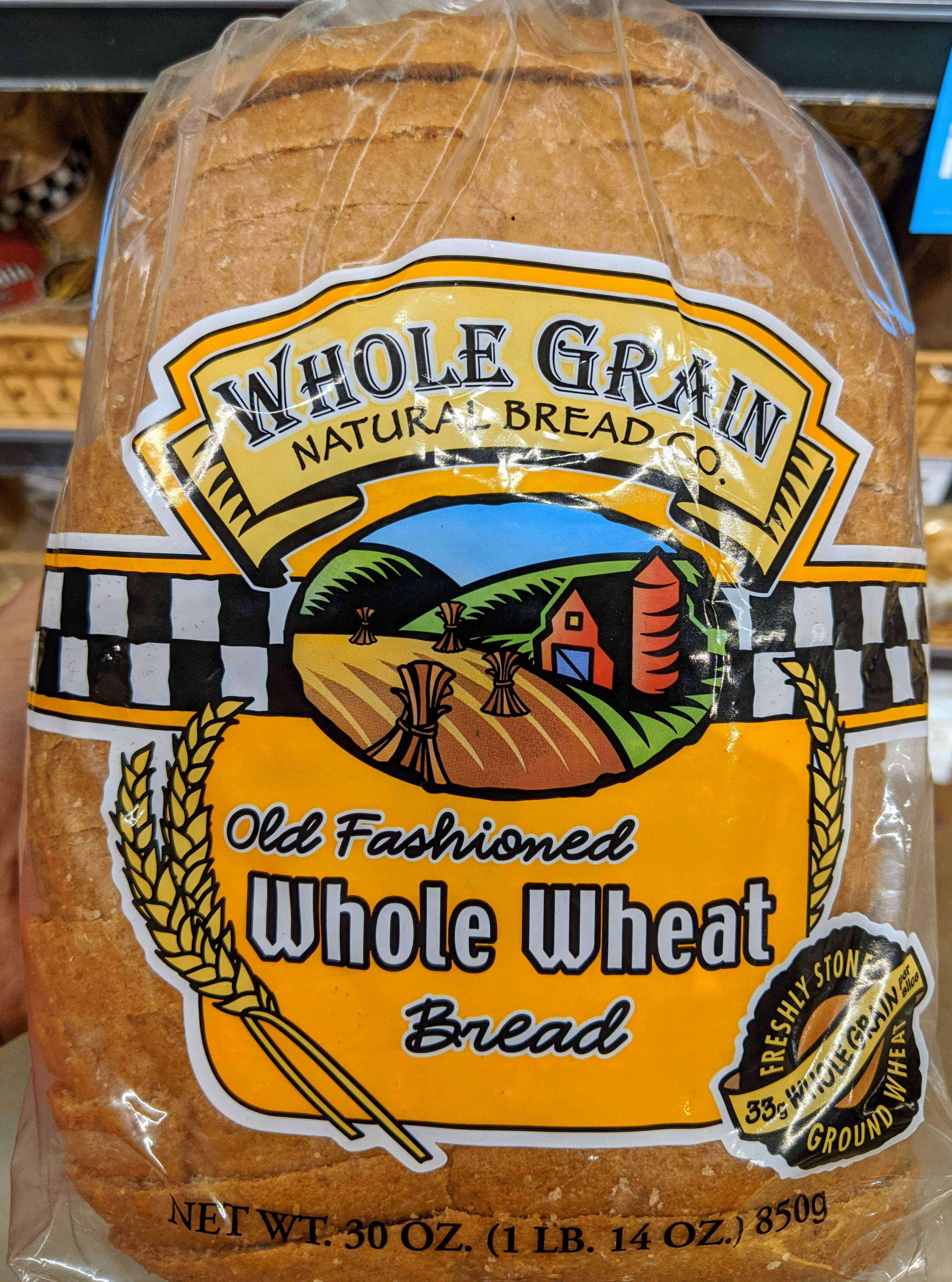

This bread has whole grains and no added sugars! It has wheat gluten (seitan) and sunflower lecithin.
Wheat gluten: Dr Greger considers seitan (wheat gluten) a 'yellow light' food (to be consumed in moderation). See this Q&A video by Dr Greger: at offset 18:00, Dr Greger discusses seitan.
Sunflower lecithin: Soy lecithin (YouTube, 3 mins) explains the role of lecithin, its chemical composition and why it is used in food preparation. Sunflower lecithin is different from soy lecithin: the source is different. In fact, many brands sell sunflower lecithin supplements! However, Dr Greger (a prominent WFPB advocate) explains: Avoid Carnitine & Lecithin Supplements (2013). Keeping Dr Greger's recomendation in mind, is it a good idea to add sunflower lecithin to processed foods?
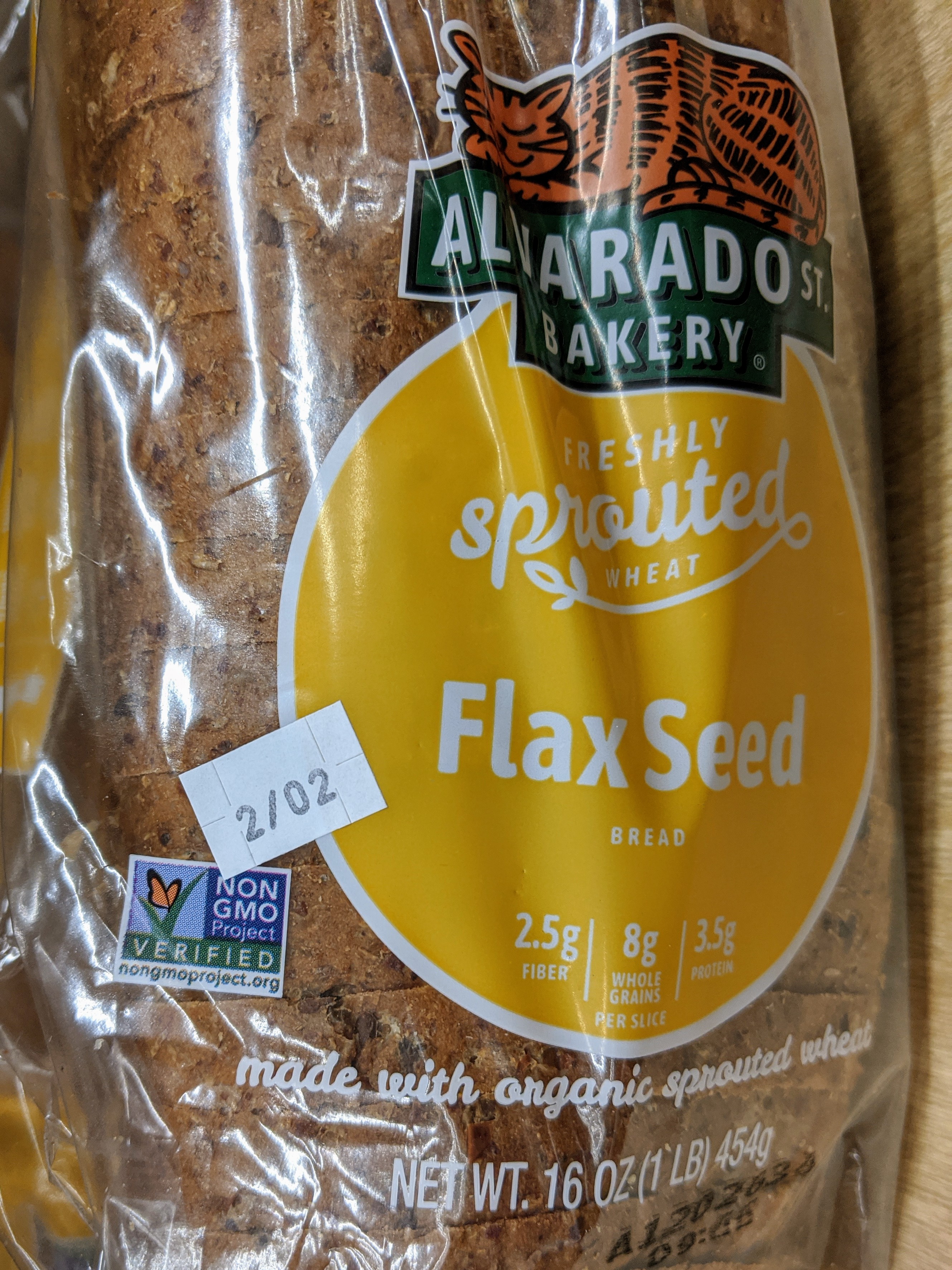
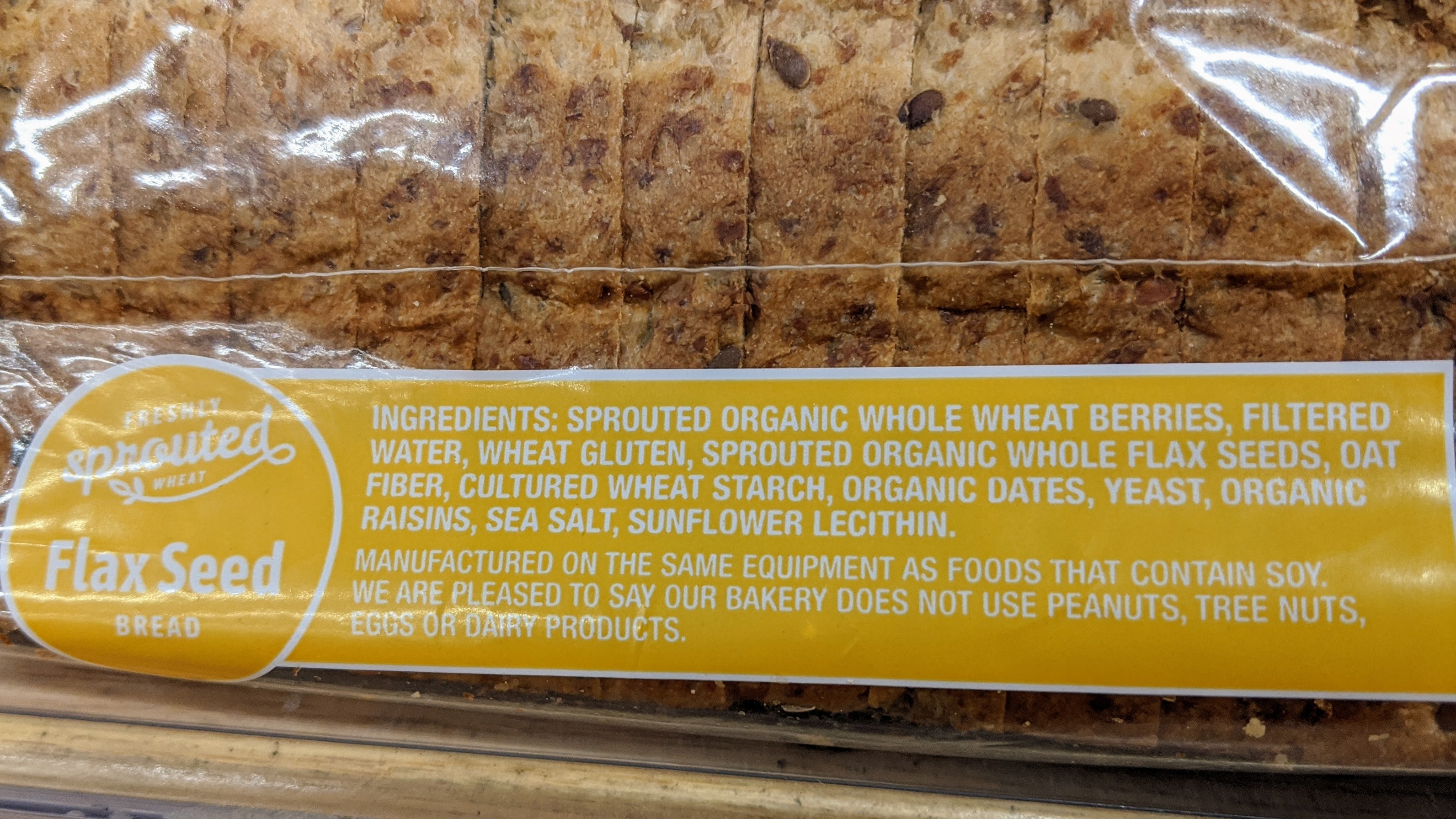
This bread has whole grains and no added sugars! It has wheat gluten (seitan) and sunflower lecithin.
Wheat gluten: Dr Greger considers seitan (wheat gluten) a 'yellow light' food (to be consumed in moderation). See this Q&A video by Dr Greger: at offset 18:00, Dr Greger discusses seitan.
Sunflower lecithin: Soy lecithin (YouTube, 3 mins) explains the role of lecithin, its chemical composition and why it is used in food preparation. Sunflower lecithin is different from soy lecithin: the source is different. In fact, many brands sell sunflower lecithin supplements! However, Dr Greger (a prominent WFPB advocate) explains: Avoid Carnitine & Lecithin Supplements (2013). Keeping Dr Greger's recomendation in mind, is it a good idea to add sunflower lecithin to processed foods?
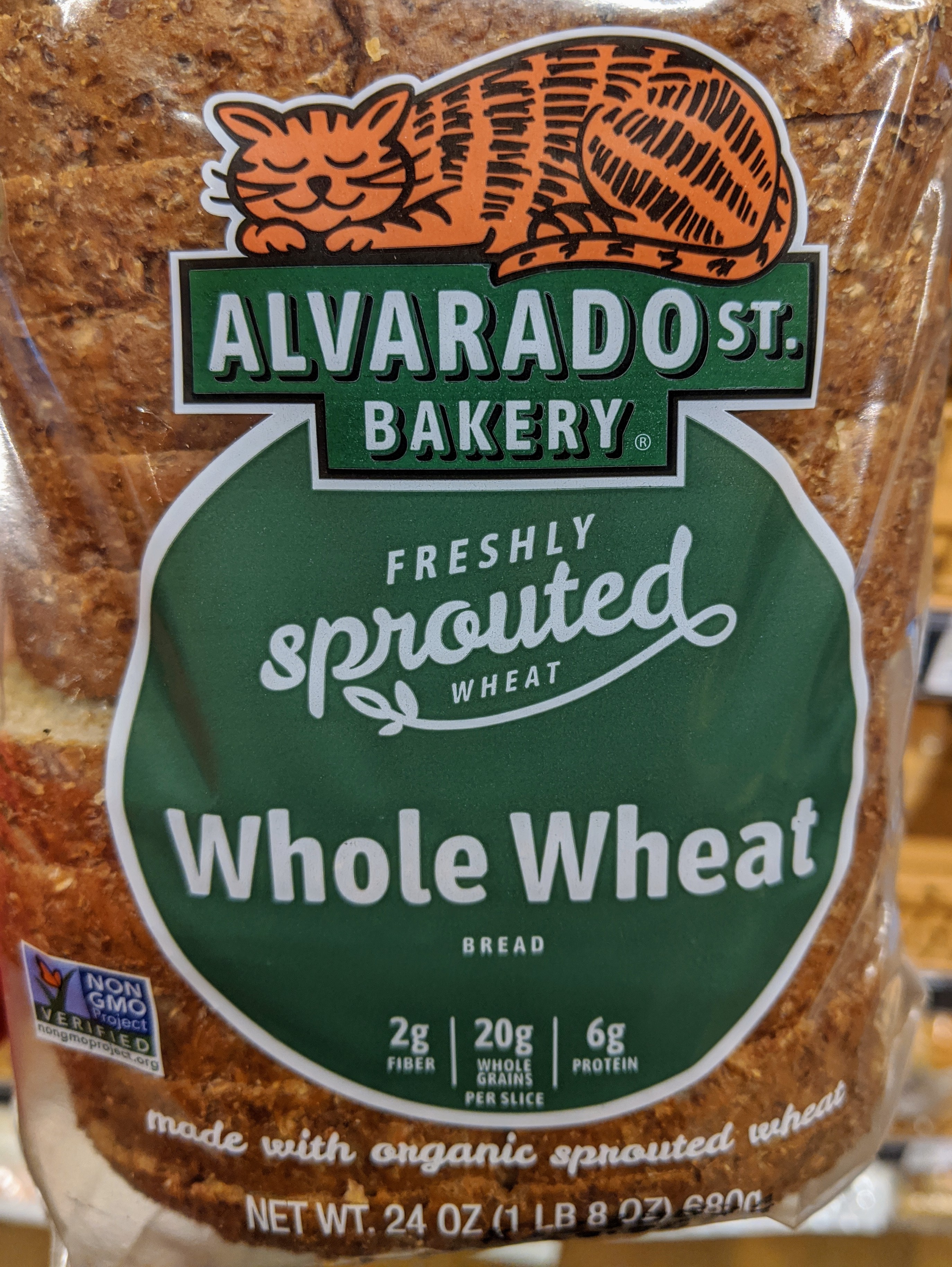
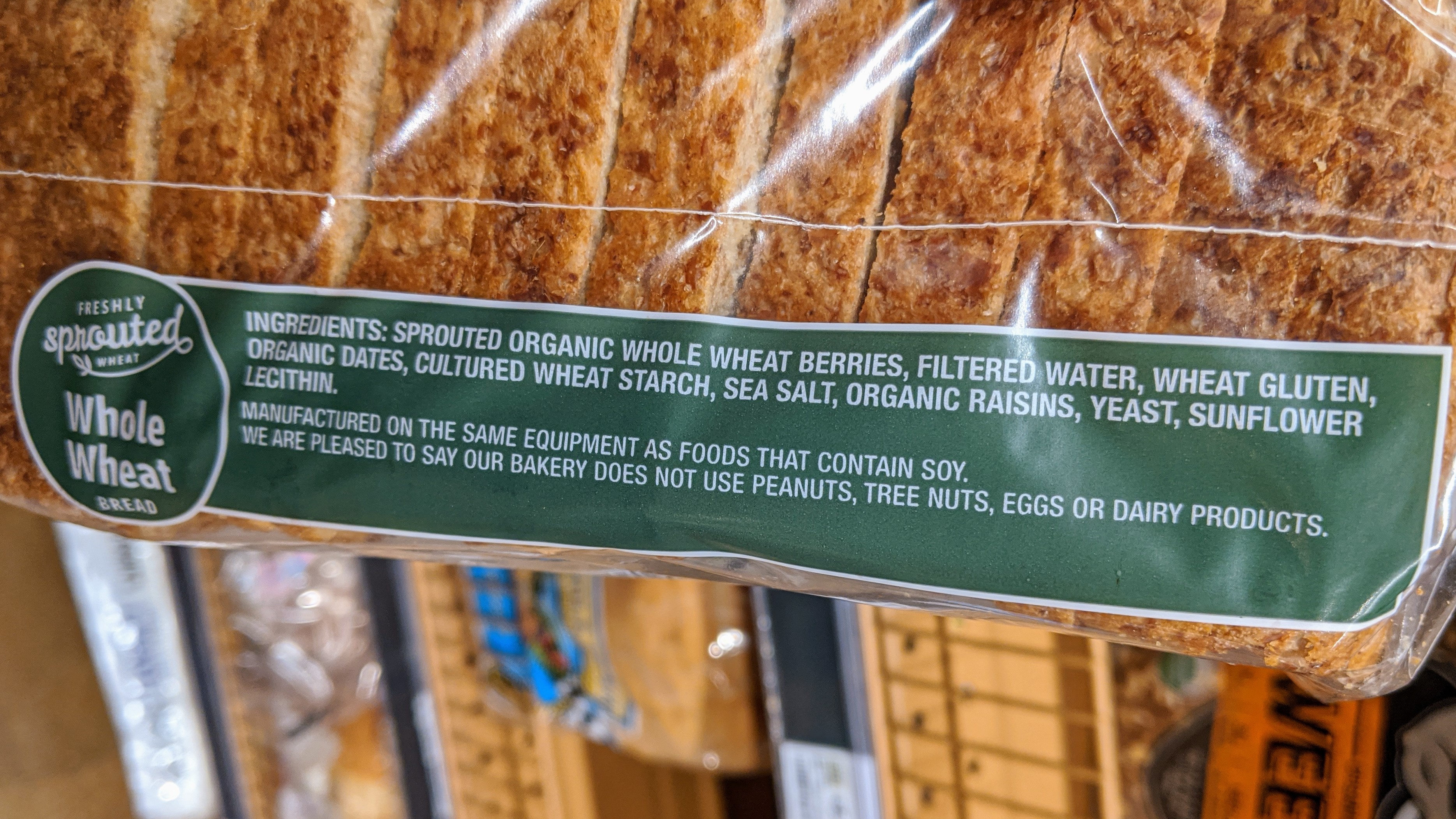
This bread is made from whole grains, no added sugars! Some salt. The only non-WFPB ingredient is olive oil.
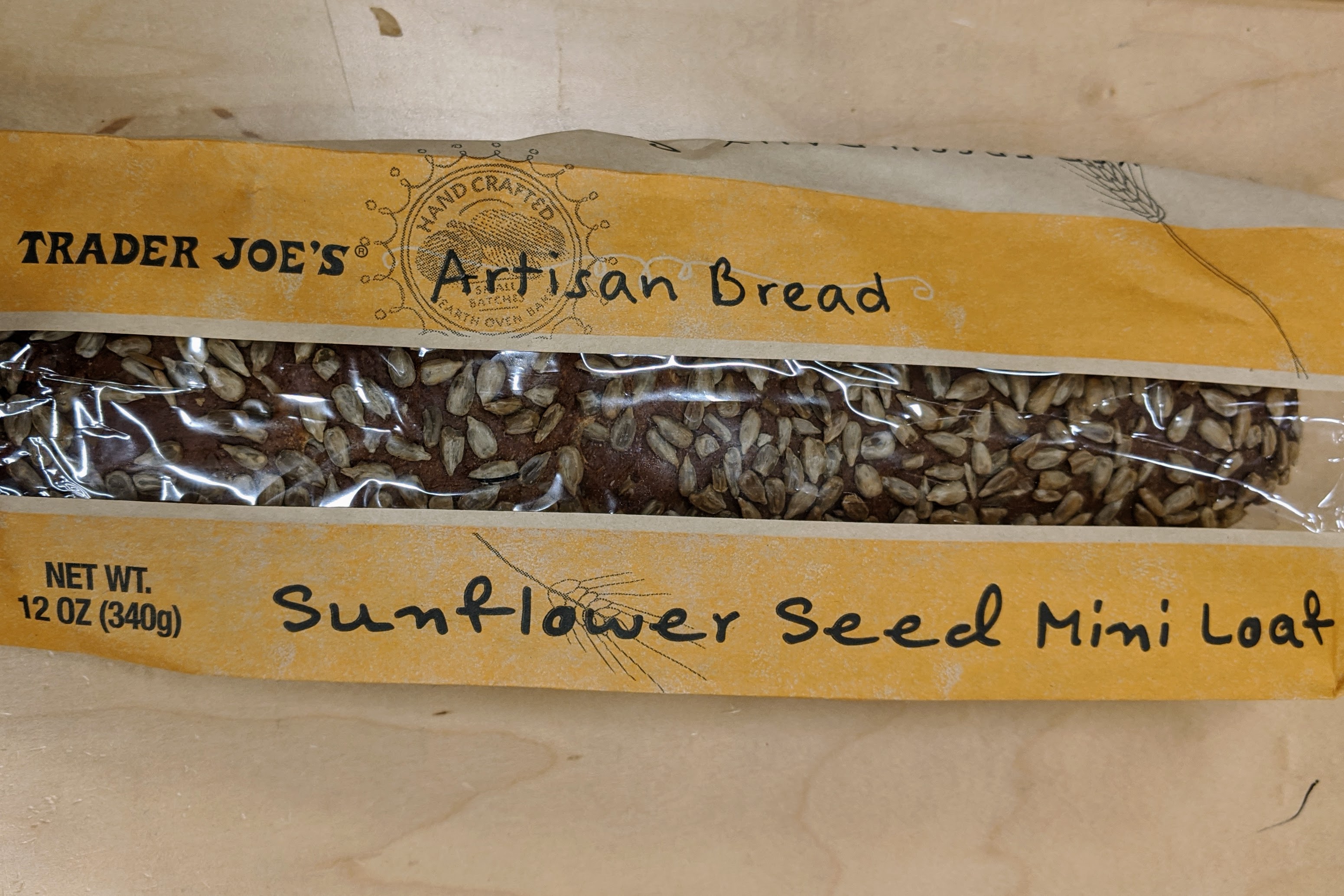
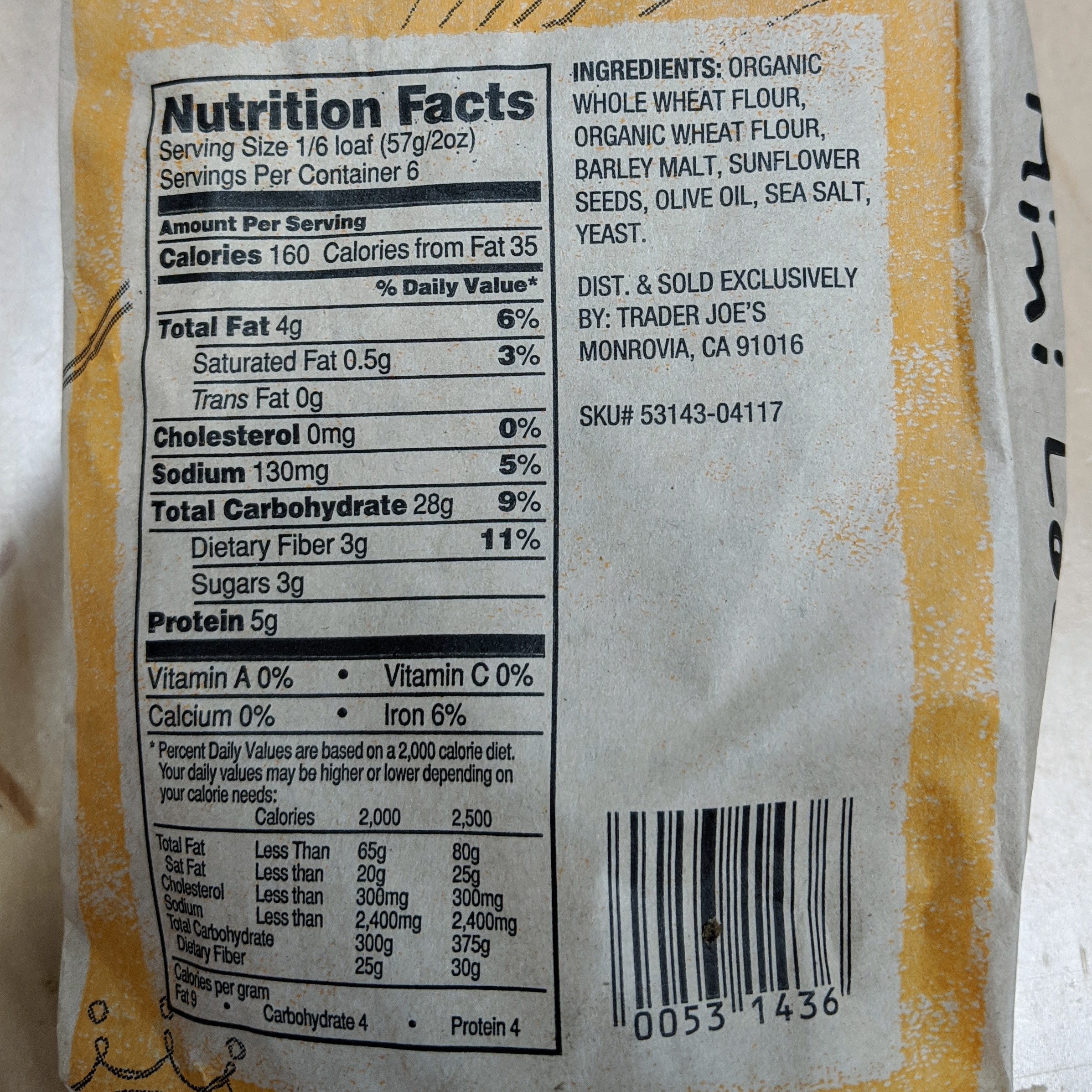

 Instagram
Instagram YouTube
YouTube